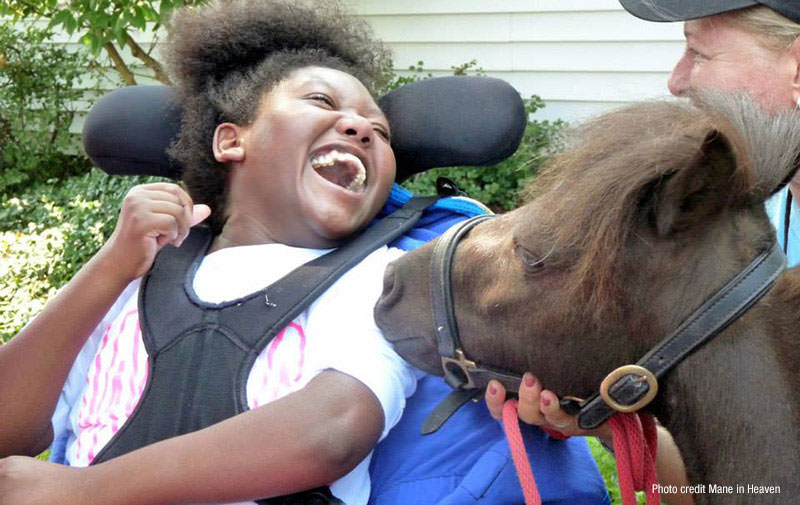Four-legged Visitors Delight Children in Pediatric Unit
Two minis walk into a hospital. The first one says to the other, I'm feeling a little hoarse.
Sure, it sounds like the opener for a corny kid joke, but it really did happen at the Rush University Medical Center in Chicago. (The part about the hospital visit, not the talking.) It seems that more and more people are realizing what our Abilities community has known for some time: Miniature horses are therapeutic and awesome.
Why Minis in a Hospital?
Why not? Assistance animals can be an integral part of therapy and healing. But the "wow factor" of seeing a horse the size of a large dog trot up to your hospital bed is undeniable. The children in the pediatric unit were over the moon at the chance to meet Mystery and Lunar; even the doctors stared in open-mouthed amazement at their first foray into horse therapy.

"We have long had animal-assisted therapy here at Rush and just seen the enormous benefits that animals can have on most children—just the joy that they bring, the unconditional love," said Robyn Hart, the hospital's director of child life services.
She went on to say that mini horses "are something that most people whether kids or adults have never seen before, and so that builds in a little more excitement and anticipation. They almost look like mythical animals, like they should have wings on."
Animal therapy: Comforting Distraction or Hard Core Treatment?
Mystery and Lunar hale from Mane in Heaven, an animal-assisted therapy group run by former obstetrics nurse Jodie Diegel. According to her, the minis bring "smiles, joy, love and laughter and that's the true healing in action."
The young patients seem to agree whole heartedly as evidenced by the sheer elation on their faces.

But are these adorable creatures actually curing illness with their gentle bedside manner? Research does suggest that this type of therapy has the positive impact of reducing pain, blood pressure, fear and stress, but much of the data is anecdotal. Dr. Caroline Burton of Mayo Clinic, a co-author of a review of 10 years of studies about in-patient therapy using dogs, is a strong proponent of incorporating animals into the therapy process. She also feels further studies should be conducted to determine the effect of these alternative treatments on duration of hospital stays and readmission rates.
While the experts hash out the science and economics, the pediatric patients of Rush University Medical Center have a different focus. They can't wait until next month, when Mystery and Lunar swing by for an encore visit.
Pre-Register for Abilities Expo Today...It's Free!